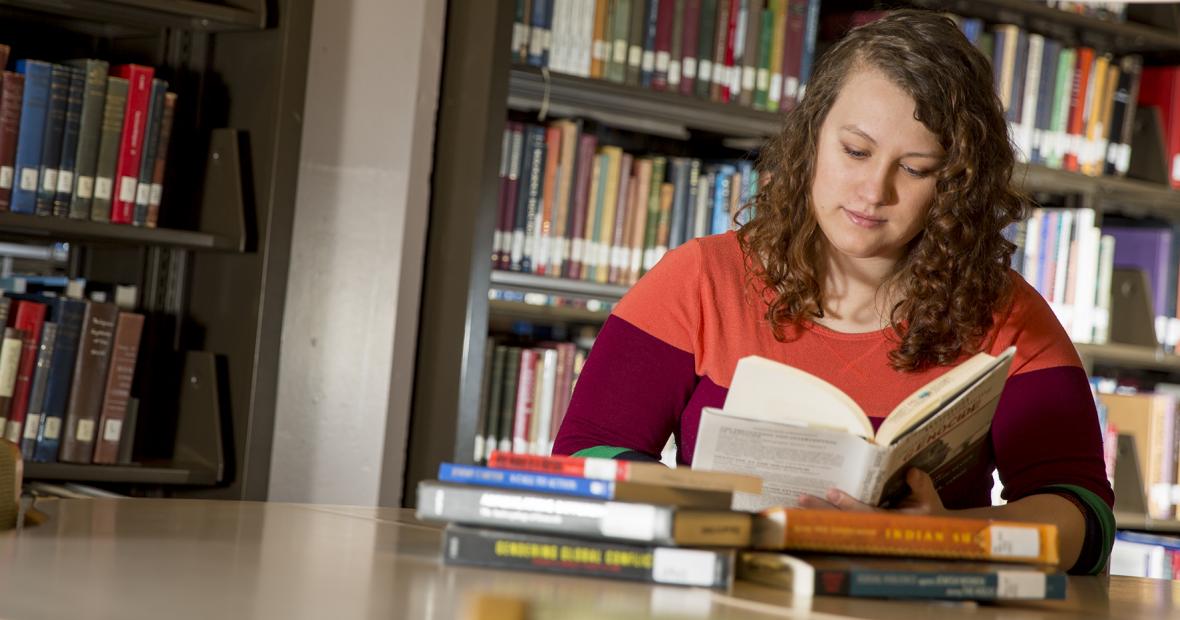For the Global Good
Grinnellians are well-known for their commitment to social justice, but not everyone knows that the College has a formal program for studying individual and global conflicts. In Grinnell’s Peace and Conflict Studies (PACS) program, students combine what they learn from fields as diverse as psychology, political science, anthropology, biology, and environmental studies to better understand the major struggles of the world.
“More than simply looking at the nature and causes of conflict and violence, we try to identify the best ways to prevent or transform conflict to create lasting peace,” says Simone Sidwell, PACS program coordinator.
Examining Conflict and Combat
Emily Ricker ’18 began her PACS research when she took a class entitled Anthropology, Violence, and Human Rights. In class she learned that sexual violence was often used strategically by the military during the 1947 partition of India and Pakistan. “I wanted to see if that was the case in other situations of conflict and combat,” says Ricker. “In my paper, I focus on the cases of Partition, the Rwandan genocide, and the Holocaust.”
By learning multiple techniques from different disciplines, PACS students are able to combine many perspectives and skills to target a problem from different angles rather than just limiting themselves to one economic, political, or sociocultural model. Students graduate with experience analyzing problems comprehensively to make the most effective solutions possible.
Sharing Research, Developing Skills
PACS holds an undergraduate conference every other year in which students from Grinnell and other schools come together to share their work and draw inspiration from each other. This year, Ricker presented her paper “Sexual Violence as a Tool of Combat” alongside three other Grinnellians in the panel session “Sexual Violence in War and Peace." Twenty students in total presented at the conference, including students from Macalester, Skidmore, and Antioch College.
Ricker also serves on the PACS committee, helping to bring speakers to campus and to edit the Peace and Conflict Studies Journal. Students who present at the conference have the opportunity to publish their papers in the journal, a chance at scholarly recognition that many college students don’t have until graduate school.
“The entire process of submitting abstracts, presenting their papers, and engaging in a peer review of their papers to get them published gives them an excellent experience,” Sidwell says. “The Peace and Conflict Studies program really empowers students to do well and to ‘do good’ after graduation, to pursue careers or postgraduate studies that help make the world a better place.”
Spanning Disciplines
As the study of peace and conflict spans so many disciplines, the PACS program coordinates with established departments, offering short courses and building PACS-specific classes into the existing curriculum. Students also have the opportunity to enroll in the new pilot course, Introduction to Peace and Conflict Studies, which is co-taught by Grinnell faculty and an outside expert in the field. The PACS program hopes to establish itself as a concentration in the future.
Emily Ricker is from Marblehead, Mass., and intends to declare a political science major.

